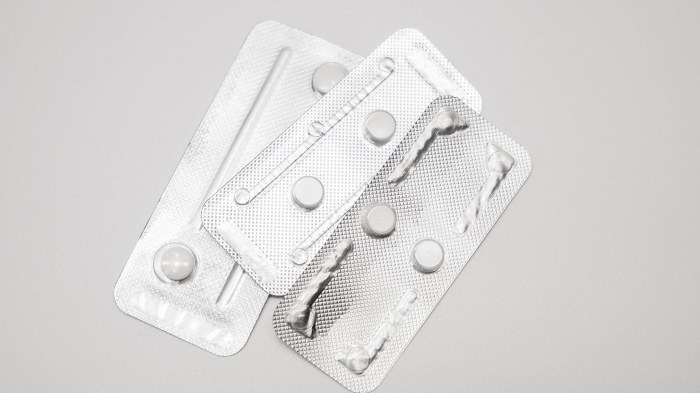The morning-after pill is a preventive treatment for pregnancy, erroneously used as a contraceptive method. This has led many women to take it, dismissing the recommendations on its use, which are very specific and explain that it should only be used in emergencies.
In the following FastlyHealarticle, we answer the question about whether I can take two morning-after pills in a month. In addition, we will also address the effects and consequences of this drug on the woman’s body and different recommendations on its use.
Table of Contents
How the morning after pill works
This treatment was created to prevent unwanted pregnancies or products of the failure of a traditional contraceptive. Its effect acts as an inhibitor of the ovulation process or deviation of the ovum when it has already started its natural process for fertilization.
Beyond that, the morning after pill is high in hormones that affect the normal functioning of a woman’s body. Three days after taking it, the patient will experience dark bleeding of short duration. This episode does not correspond to menstruation but the effects of the pill.
After this bleeding, the woman must wait for the arrival of her regular cycle to regulate her process again. It is advisable to use one of the more traditional contraceptive methods – pills, condoms, or patches – to avoid pregnancy while regulating the menstrual cycle.
The morning-after pill is not an abortion pill, as it acts as a pregnancy inhibitor and not on the fetus. Thus, their work is before the gestation or formation of the baby. Likewise, it does not represent any risk if it has been taken too late when the fertilization process was carried out.
How do you take the after pill?
To achieve its effectiveness, the morning-after pill must be ingested within 24 hours of the sexual act or, failing that, up to 5 days later, although the effect gradually decreases. According to the studies carried out, the effectiveness of the morning-after pill evolves in this way:
- 95% effective during the first 24 hours
- 85% between 25 and 48 hours.
- 58% from 48 hours onwards, with a tendency to decrease effectiveness as the days go by.
On the market, there are several types of after pills. The most common of them contains Levonorgestrel and does not require a prescription for purchase or consumption. However, it is a high-cost drug, so some women invest in a preventive way.
Its presentation is a single dose. Contrary to what is believed, doubling your treatment in the same intake does not guarantee increased effectiveness. On the contrary, it can cause side effects in women associated with physical discomfort and emotional disorders.
Can I take two morning-after pills in a month?
Taking two morning-after pills in a month is utterly counterproductive due to the hormonal shock it represents for the body. Although it does not have side effects that can affect a woman’s fertility, excess consumption can cause discomfort and lack of control in the menstrual cycle.
Another contraindication is increasing the dose to ensure greater effectiveness. The effects of overdose coincide with those of double use in a month. Hence, it cannot be used as a contraceptive method, but only for emergencies. Its prolonged use can cause disorders in the menstrual cycle.
Finally, it is not advisable to mix alcohol and this type of medicine. Although there is no risk in the pill’s effects, if the woman vomits before the body has absorbed the dose, it will lose its impact. If something like this happens, it is advisable to wait up to 12 hours for a new intake.

Taking the morning-after pill twice in a row: effects
The most common symptoms associated with taking two morning-after pills in a month are:
- Increased bleeding is not related to menstruation.
- Abdominal distention.
- Disorders in the menstrual cycle (delay or advance).
- Tenderness in the breasts.
- Feeling of fatigue and tiredness.
- Headache.
- Dizziness, nausea, and vomiting in some cases.
- Stomach problems such as diarrhea
- Allergic-type reactions on the skin of the face.
- Itching and itching.
Although the morning-after pill is freely available, without a prescription, it is always important to carry out a check-up after taking it. The gynecological examination can tell whether the menstrual cycle has accepted its ordinary course. In the same way, the patient will have the certainty that everything is going well within her body.
Self-medication is not advisable under any circumstances. The same goes for self-diagnosis for irregular symptoms or discomfort. In any of these cases, medical care can improve health and well-being, which is why at FastlyHealwe always recommend consulting specialists.
This article is merely informative. At FastlyHeal .com, we do not have the power to prescribe medical treatments or make any diagnosis. We invite you to see a doctor in the case of presenting any condition or discomfort.
If you want to read more articles similar to Can I take two morning-after pills in a month? We recommend that you enter our category of Female reproductive system.

I am a Surgeon with a diploma in comprehensive ultrasound and surgical care residency, an area I am specializing in. During the exercise of my profession, I have realized the need for patients to know the diseases they suffer, and I can tell you that a large part of their complications is due to a lack of information. Being a health web writer allows me to transmit my experience, without borders, to all those readers eager for knowledge, educate them in the prevention of diseases and promote a healthy lifestyle.

